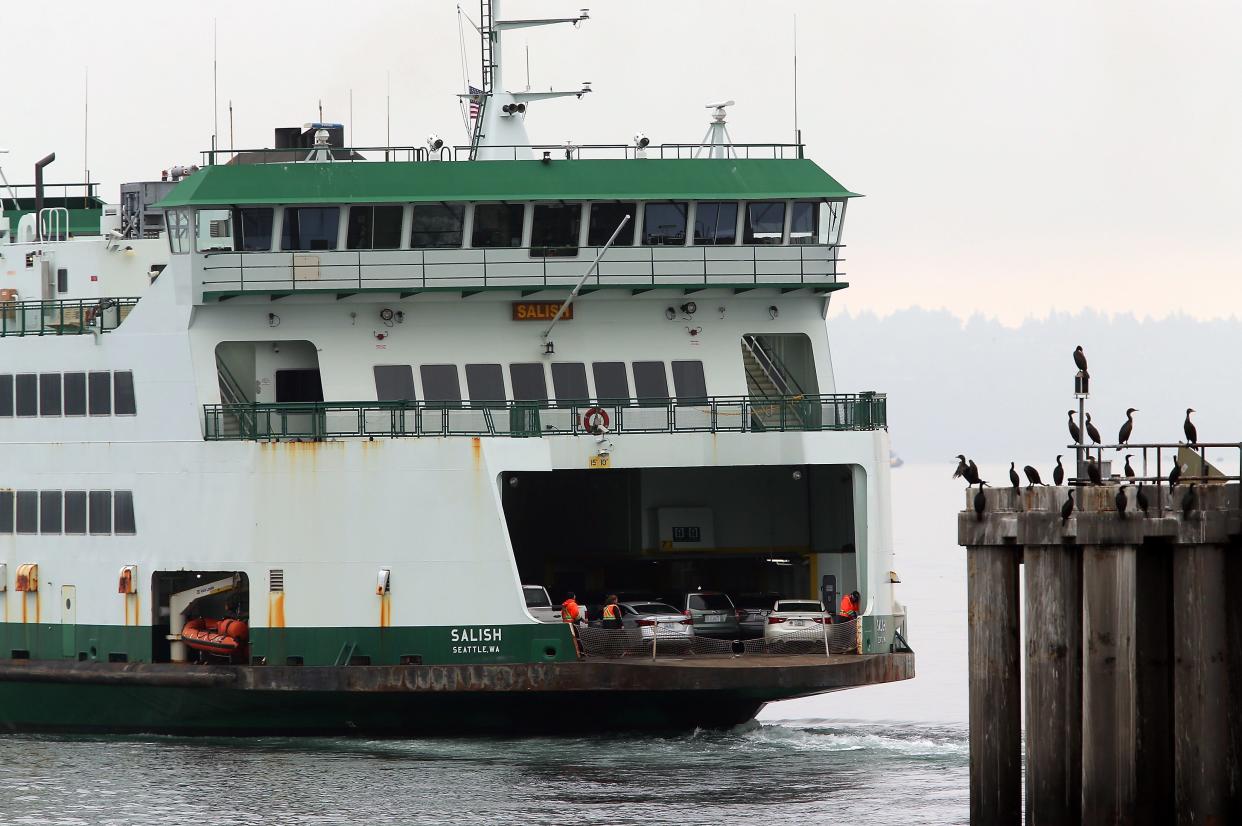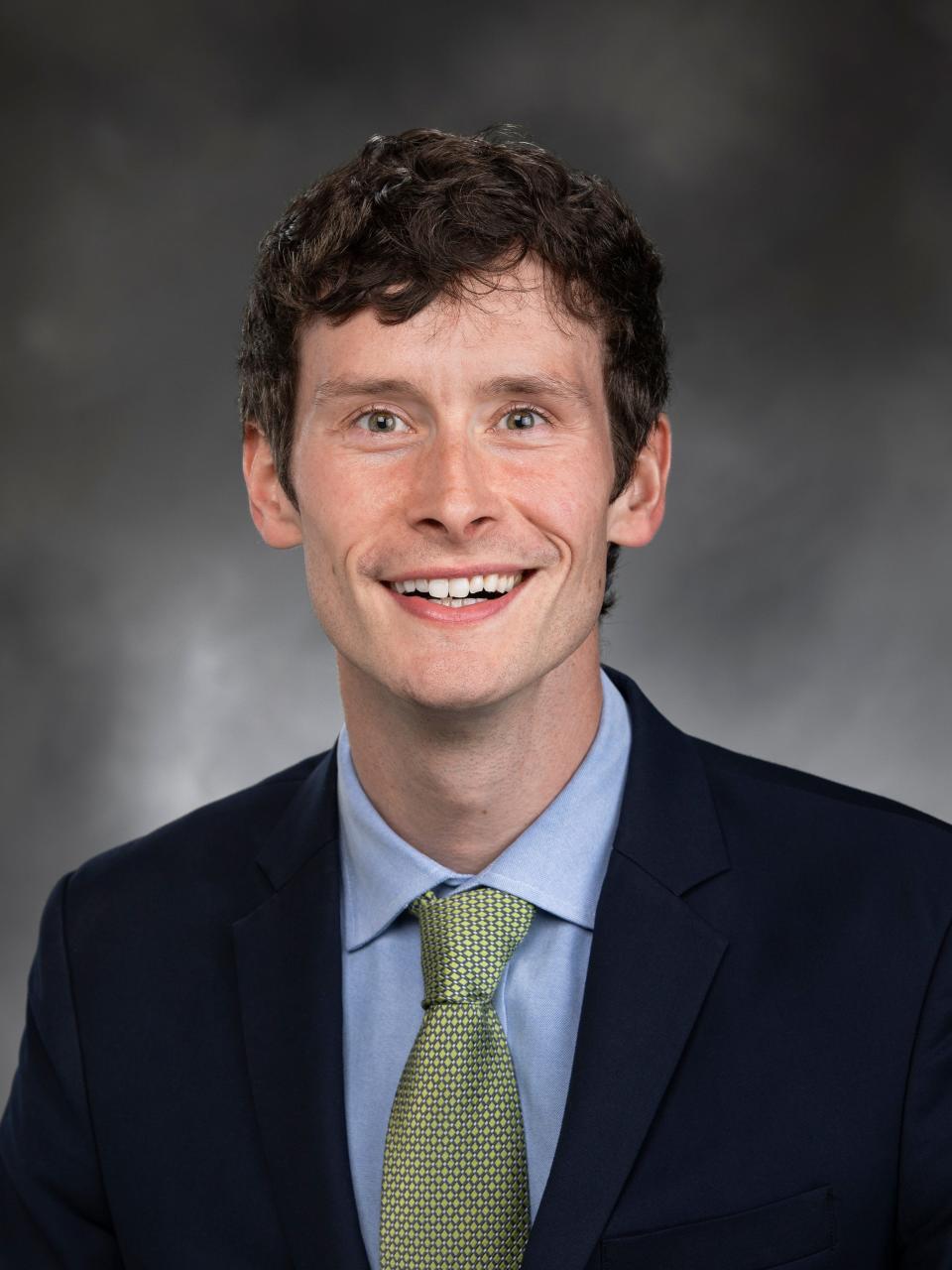3 policies we'll pursue in Olympia to help fix our state ferry system

When I grew up here in Kitsap, our ferries were something you could count on. They sailed on schedule.
Today, our ferry system is overworked and overwhelmed. Long delays and cancelled sailings are common. I hear the same stories in Kingston, Bremerton, Bainbridge and beyond. WSF needs real help to stay afloat.
And so do all the families here who rely on ferries to travel to work or school, to medical treatment, or to visit friends and family. Supporting our marine highway is critical to our region.
This isn’t just a problem for folks who live on the peninsula — a broken ferry system disrupts communities and commerce across Puget Sound. Even farmers on the far side of the Cascades are impacted by costly delays and spoilage.
Before we can fix the problems, we need to understand what’s wrong and how we got here.
We’ve chronically underfunded our fleet for decades — only 13 of 21 WSF vessels are currently operational. Our maritime workforce is stretched to the limit with the onset of “silver tsunami” retirements intensified by COVID-19 — and it's projected we’ll lose hundreds more to resignations and retirement by 2030. Amid the turbulence, we’ve had a revolving door of WSF leadership since 2014, with a new director taking office in the new year.
Folks across Kitsap are frustrated with service disruptions and the lack of transparency and accountability.
There is no silver bullet to fix our ferries, but there is silver buckshot. After meeting with dozens of WSF crewmembers, union reps, community leaders and maritime experts we are building plans to turn the tide. Our policies focus on three areas: investing in new vessels with lower fuel costs; rebuilding the ferry workforce; and fostering transparent, accountable leadership.
Building a 21st century fleet of ferries
Our vessels are aging, and breakdowns are now common. We are building new ferries, but not fast enough.
Construction costs are soaring, and the state can’t finance a system overhaul alone. We need federal funding to restore America’s largest ferry fleet. Lawmakers can and should be making direct requests for federal funding. Last month I represented Kitsap at the White House for an infrastructure briefing to make the case directly to the Biden Administration.
Congress has authorized billions of dollars from the Inflation Reduction Act and Climate Commitment Act, and the administration is seeking shovel-ready projects. American shipyards are ready to build the next generation of WSF vessels and federal investment can make it happen.
Refurbishing aging vessels is a necessary stopgap, but we should prioritize new vessels that are more reliable and cost-effective.

Many of us spend hundreds at the pump to fill our gas tanks each month. Now imagine filling up the Wenatchee or Tacoma’s 110,400-gallon diesel tank.
That’s an enormous cost. And we pay for all that diesel, as taxpayers and ferry riders. We also pay for the negative climate impacts too.
Hybrid ferries will be a huge win for all of us: saving money, reducing pollution on our waterways, helping our ferry engines last longer, and the boats sail on schedule.
Training and retaining a 21st century ferry workforce
Keeping the fleet sailing smooth requires a hardworking, highly skilled crew of 1,800. Ferry jobs are demanding so they aren’t easy to fill. It can take years to get certified and many more to qualify for senior jobs in the engine room and on the command deck. But most mandated training goes underpaid or unpaid altogether, discouraging folks from taking the first steps.
For WSF to compete against private sector employers who offer better pay, we need to change how we recruit and train.
Providing signing and retention bonuses to able seaman, oilers, deck hands and other in-demand fields and expanding paid training opportunities will give aspirants a fair shot at a good-paying job.
We should cut red tape that prevents skilled sailors and machinists from joining WSF and provide direct pathways for honorably discharged veterans, with a special focus on Naval Base Kitsap and Naval Station Everett.
Expanding partnerships with schools across the state can also introduce graduating students to a maritime career pathway. Building more training facilities is key. Maritime academies in Anacortes, Ballard, Port Townsend and Tacoma show early progress, but more is needed.
We should take the first steps to establish a Puget Sound Naval Academy in Bremerton to prepare students from Kitsap and across the country for WSF careers.
Transparent, accountable leadership
A turnaround requires strong, steady leadership that restores crew morale and public confidence. But WSF has cycled through five assistant secretaries since 2014. A sixth will take office in the new year.
The revolving door is, in part, structural. WSF is a division within the Department of Transportation and its budget is dwarfed by highway maintenance and construction. The assistant secretary role is shaped as a stepping-stone to greater responsibility at WSDOT.
Given the vital importance and perilous shape of the ferry system, we are calling for the director of WSF to be appointed directly by the governor and elevated to a cabinet-level secretary post.
But amending an org chart is only meaningful with increased accountability.
Real-time WSF performance metrics, including delays and cancellations, should be visible through a public-facing dashboard. Increased visibility can help restore trust in our ferries while leading to needed reforms that better support our hardworking WSF crewmembers.
We’ll face headwinds making this roadmap happen. That's why we’ve gotta work together. As state representitive, I’m working with community leaders in Kitsap and Puget Sound and lawmakers across Washington, but I need your help.
Please stand up and speak out. Email my office (Greg.Nance@leg.wa.gov) to share your story. Join one of my upcoming coffee chats in your neck of the woods. Testify in Olympia or remotely when ferry issues come before the House Transportation Committee so lawmakers across the state can hear how important reliable ferries are for our community.
Ferry riders don’t have lobbyists or think tanks. All we have is your voice, and your stories. And I hope you take a moment to be heard. Because that’s the only way real change happens.
Together, we’ll fix our ferries.
Rep. Greg Nance (D-23rd District) grew up in Kitsap County and is a lifelong WSF rider. He is a nonprofit leader working on youth mental health and serves on the House Transportation Committee and Ferry Caucus.
This article originally appeared on Kitsap Sun: A policy roadmap to solving Washington State Ferries problems

